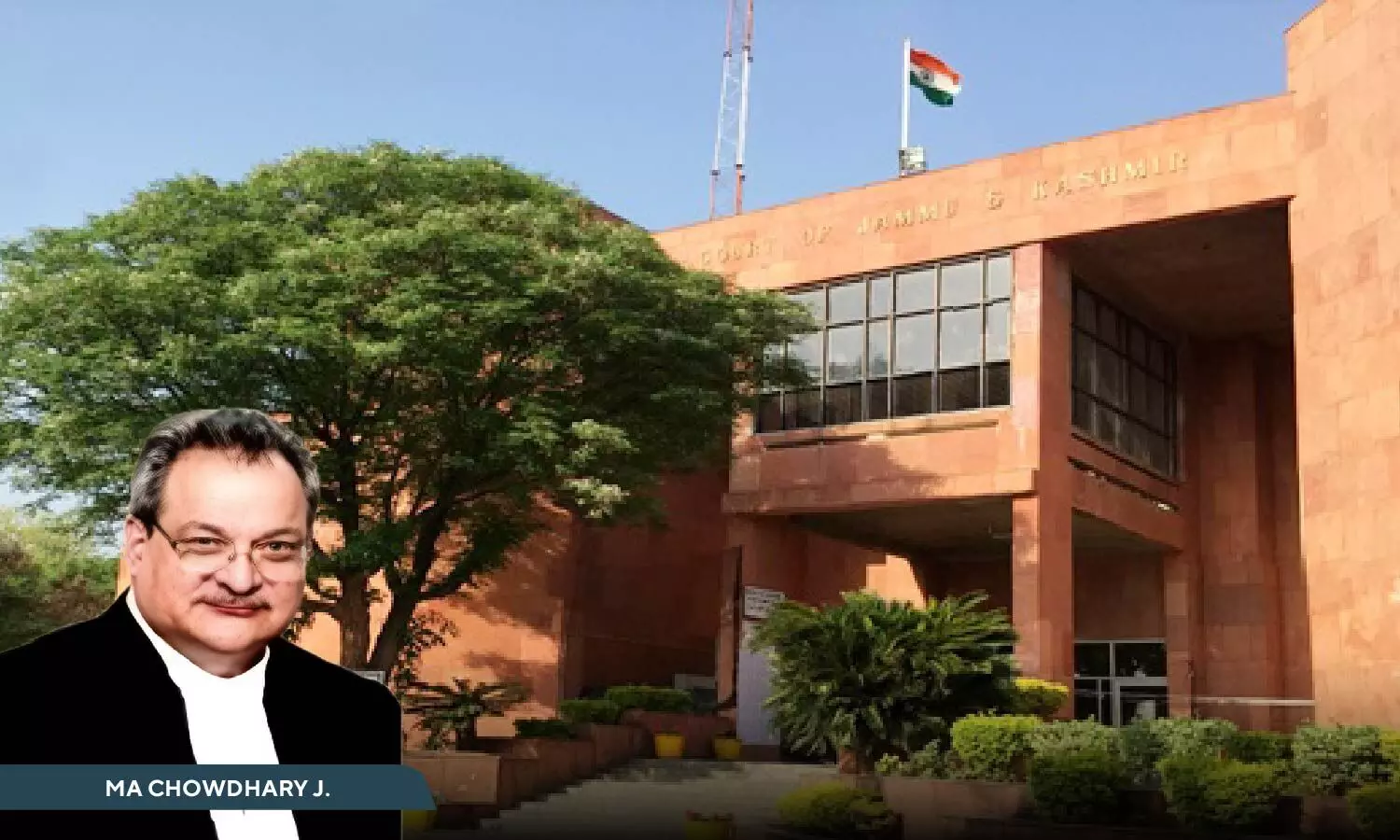
Contractual Appointment Can't Be Terminated Without Affording Opportunity Of Hearing If It Casts Stigma On Employee: J&K & L High Court
 |
|The High Court of Jammu & Kashmir and Ladakh has recently observed that terminating contractual appointments is impermissible without providing an opportunity for a hearing, particularly when the termination is grounded in allegations of misconduct that tarnish the employee's reputation.
The Single Judge Bench of Justice M. A. Chowdhary in his Judgement emphasized the necessity for a fair and just process even in cases of contractual employment, highlighting the significance of affording individuals the chance to address and counter any accusations that may have a detrimental impact on their professional standing.
The Court stated, "...if an order is founded on allegations, the order is stigmatic and punitive and services of an employee cannot be dispensed with without affording him an opportunity of defending the accusations/allegations made against him in a full-fledged inquiry. Hence, it is settled law that even a contractual appointment cannot be terminated without affording an opportunity of hearing, if founded on allegation and/or misconduct, which casts a stigma on such an employee."
The Writ Petition filed revolved around individuals employed on a contingency basis at the J&K Handicrafts Corporation. The Petitioner's services were unexpectedly discontinued after the Anti-Corruption Bureau (ACB) issued an 'Alert Note,' alleging irregularities in their appointments. Aggrieved, Petitioners challenged the order.
It was the submission of the Petitioners that without affording any opportunity of being heard, their services were disengaged on the recommendations of ACB, when it was incumbent upon the Managing Director to provide an opportunity of being heard to the petitioners by following the principle of natural justice and due course of law.
On the other hand, the Respondents contended that the Petitioners filed the instant petition without any cause of action against the Respondents. They submitted that a complaint was lodged by one M. Jan and others (employees of JKHC) to Anti Corruption Bureau J&K Srinagar against Ishtiyaq Hussain Drabu, Ex-Managing Director J&K Handicrafts (S&E) Corporation, alleging therein the appointments of at least 15 persons made by him against financial consideration and without any advertisement, as well as, approval of the competent authority.
The High Court observed that the contested termination order was grounded in allegations directed at the then Managing Director of the Corporation, rather than the petitioners individually. The Court acknowledged that the termination order, in essence, placed a stigma on the petitioners, adversely affecting their reputation and prospective opportunities.
The Court noted, "It is true that the order of disengagement has been passed on account of abuse of powers by the appointing authority, however, without holding a proper enquiry in the matter. The whole issue revolves around a complaint of some persons before the Anti Corruption Bureau against the then Managing Director, and based on some enquiry, the ACB issued a communication recommending disengagement of the petitioners for the reasons that these engagements have been made by the abuse of authority by various Managing Directors of the Corporation. Admittedly, no enquiry has been conducted in the matter and the petitioners were disengaged from service vide Order No. 91- JKHC of 2022 dated 16.09.2022, impugned herein, issued by Managing Director of the J&K Handicrafts Corporation, without affording an opportunity of hearing to the petitioners."
The High Court also relied on the Judgment of Supreme Court of India in K.C. Joshi v. Union of India & Ors (1985) 3 SCC 153, where it was held that contract of service has to be in tune with Articles 14 and 16 of the Constitution of India and if it is to be suggested that one can dismiss anyone without a semblance of inquiry or whisper of principles of natural justice, such an approach overlooks the well-settled principle that if State action affects livelihood or attaches stigma, punitive action can be taken only after an inquiry, in keeping with the principles of natural justice.
The Court added, "Since, the instant case relates to engagement of the petitioners on consolidated/need/contractual/contingency basis in the respondent-Corporation, it will be pertinent to look at the law with respect to stigmatic order, in the context of tenure appointments, therefore, the disengagement of petitioners from services is not only unreasonable but penal in nature also, passed without affording opportunity to meet the charge, thus, the order is unsustainable."
The Court accordingly quashed the impugned order and allowed the Petition.
Cause Title: Feroz Ahmed Sheikh & Ors. v. Union Territory of J&K & Ors. [WP(C) No. 2260/2022]